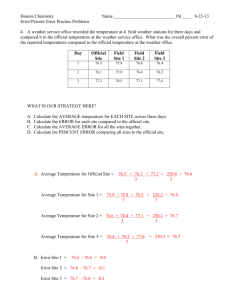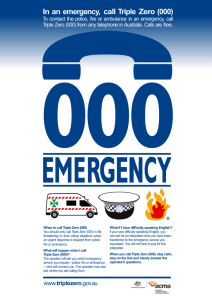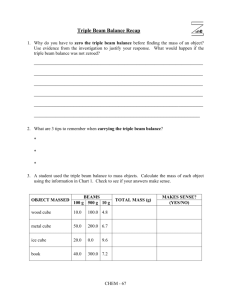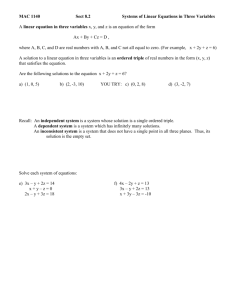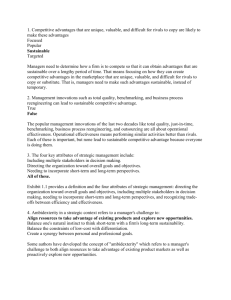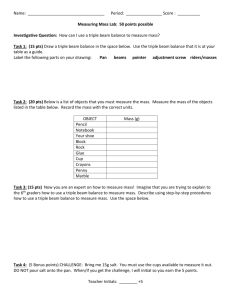Double and triple entry journals
advertisement
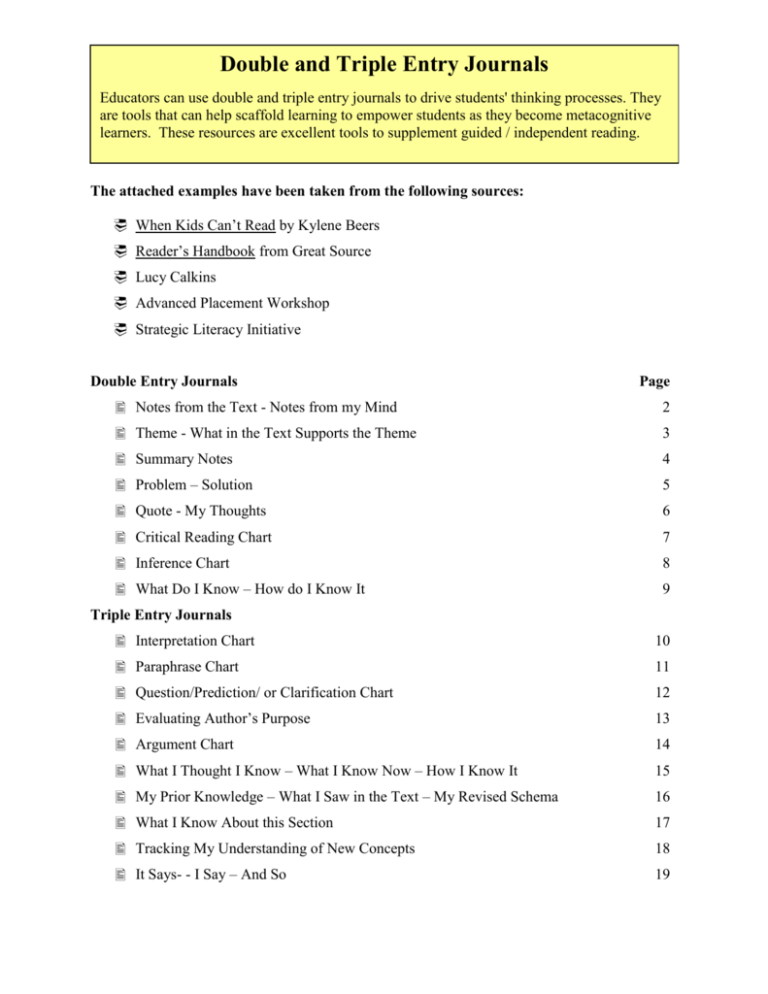
Double and Triple Entry Journals Educators can use double and triple entry journals to drive students' thinking processes. They are tools that can help scaffold learning to empower students as they become metacognitive learners. These resources are excellent tools to supplement guided / independent reading. The attached examples have been taken from the following sources: When Kids Can’t Read by Kylene Beers Reader’s Handbook from Great Source Lucy Calkins Advanced Placement Workshop Strategic Literacy Initiative Double Entry Journals Page Notes from the Text - Notes from my Mind 2 Theme - What in the Text Supports the Theme 3 Summary Notes 4 Problem – Solution 5 Quote - My Thoughts 6 Critical Reading Chart 7 Inference Chart 8 What Do I Know – How do I Know It 9 Triple Entry Journals Interpretation Chart 10 Paraphrase Chart 11 Question/Prediction/ or Clarification Chart 12 Evaluating Author’s Purpose 13 Argument Chart 14 What I Thought I Know – What I Know Now – How I Know It 15 My Prior Knowledge – What I Saw in the Text – My Revised Schema 16 What I Know About this Section 17 Tracking My Understanding of New Concepts 18 It Says- - I Say – And So 19 Double Entry Journal Notes From The Text (What’s in the Book) Notes From My Mind (My Response) 1 Double Entry Journal Theme (Provided by Teacher) What In The Text Supports The Theme 2 Double Entry Journal Summary Notes Page # Most Important Information Key Facts or Names Key Terms or Ideas 3 Double Entry Journal Problem Solution 4 Double Entry Journal Character Quote from Novel My Thoughts 5 Double Entry Journal Critical Reading Chart Question Is the main idea or viewpoint clear? My Thoughts What evidence is presented? Are the sources authoritative and reliable? Is the evidence convincing? Is there another side of the story? 6 Double Entry Journal Inference Chart Text What I Conclude 7 Double Entry Journal What Do I Know How Do I Know It 8 Which Text Triple Entry Journal Interpretation Chart Immediate Reaction (After Reading Text) 9 Reaction After Reflection (After Class Discussion) Lines Triple Entry Journal Paraphrase Chart My Paraphrase 10 My Thoughts Page # Triple Entry Journal Quote from the Text Question/Prediction/ or Clarification 11 Author’s Purpose Triple Entry Journal Evaluating Author’s Purpose Questions to Ask Explain Have you learned something helpful as a result of the reading? Entertain Did you enjoy the selection? Did it make you laugh or cry? Would you recommend it to a friend? Persuade Have you changed your mind as a result of the reading? Enlighten Did the reading help you think about a topic or idea in a new way? 12 My Thoughts Viewpoint Triple Entry Journal Argument Chart Support 13 Opposing Viewpoint What I Thought I Knew… Triple Entry Journal Metacognitive Chart What I Now Know 14 How I Know It My Prior Knowledge Triple Entry Journal Metacognitive Chart I Saw in the Text 15 My Revised Schema What I Know About This Section of the Text (Summary or Explanation) Triple Entry Journal Metacognitive Chart The Text (With My Notes, Highlights, and Conversation) 16 How I Figured Out What I Know (Strategies I Used) Tracking My Understanding of New Concepts Key Concept My Understanding Before Doing the Reading New Ideas and Examples from the Reading (Evidence from the Text) 17 My Revised Understanding from the Reading How Did I Arrive at this New Understanding? Question (Read the Question) It Says (Find information from the text that will help you answer the question.) I Say (Think about what you know about that information.) 18 And So (Combine what the text says with what you know to come up with the answer.)
